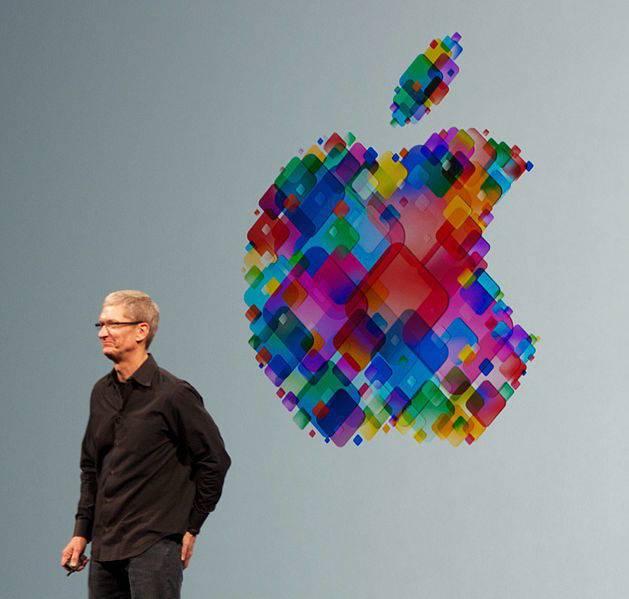
Long understated and appearing to avoid the limelight when compared to his predecessor, Steve Jobs, Apple CEO Tim Cook has not just stepped out of Jobs’s shadow - he has leaped from it.
Jobs has long been credited with not only rescuing Apple from near irrelevance in the 1990s and lifting it to its current status as the world’s most valuable company – but Cook has been more than a simply a steward for the company. And in contrast to Job’s reputation for being a fierce perfectionist and a singular cult-like figure, Cook has groomed a reputation for valuing teamwork while his relative calmness helps position Apple as a sought-after employer. Meanwhile, Cook continues to respect Jobs’s legacy, as a comment he made last year that the late co-founder and CEO is “irreplaceable.”
Cook has been conducting himself far less as a replacement and more as a strategist guiding Apple to its next phase – one that sees the company not only as a consumer electronics leader, but one that is more transparent and socially responsible than in previous years. Meanwhile, investors have been more than satisfied as Apple's stock price continues its upward trajectory.
Jobs was laser-focused on innovation, which of course contributed to the company’s success the past 15 years as it rolled out products such as the iMac, iPhone, iPad and iTunes. Cook has nudged Apple to become a more active corporate citizen when it comes to the environment or social issues. Fair or not, Jobs had the reputation for spurning philanthropy in contrast to his peers such as Bill Gates or Warren Buffet. But Cook has been public about doing the very opposite, as shown most recently in his announcement that Apple will donate $2 million to anti-hate groups in the wake of the violence in Charlottesville.
Cook’s emergence as a business executive ready to confront America’s social ills was long underway before Charlottesville, but the aftermath, and the U.S. president’s handling of that tragedy, clearly pushed him to become even more outspoken. In widely distributed remarks after President Trump’s much criticized remarks during a press conference at Trump Tower on August 15, Cook wrote:
"I disagree with the president and others who believe that there is a moral equivalence between white supremacists and Nazis, and those who oppose them by standing up for human rights," Cook wrote. "Equating the two runs counter to our ideals as Americans."
Cook reiterated his stance in an interview earlier this week with the New York Times, when he said:
“I think we have a moral responsibility to help grow the economy, to help grow jobs, to contribute to this country and to contribute to the other countries that we do business in.”
That hardly sounds like an executive snuggling with Wall Street.
Cynics will be quick to point out that Cook recently collected an estimated 560,000 Apple shares worth almost $90 million. Apple also reportedly has almost $250 billion dollars stashed mostly overseas, and its products are mostly manufactured on the other side of the Pacific Rim. To those who buy into the narrative that the one percent rules the world, those actions far outweigh Cook’s increasingly combative words.
At the same time, Cook and Apple have realized that more investment in people and the planet is needed if the company will be viable in the long run. The company has launched an education program to encourage more people to develop apps, says it is investing $1 billion to boost U.S. manufacturing and has quietly hopped on the clean energy bandwagon.
The reality is that as more Americans throw up their hands as their governments devolve into partisan bickering, companies have a wide opening to step in and lead. And Cook clearly sees an opportunity with a president who punted on a chance to heal the country earlier this month, and more recently used the Hurricane Harvey tragedy to focus more attention on himself.
To that end, a snippet of a speech Cook highlighted is telling, especially since it is the only entry on his Medium profile:
“There has been something crude and heartless and unfeeling in our haste to succeed and be great. Our thought has been, ‘Let every man look out for himself, let every generation look out for itself,’ while we reared giant machinery which made it impossible that any but those who stood at the levers of control should have a chance to look out for themselves.”
Image credit: Mike Deerkoski/Wiki Commons

Leon Kaye has written for 3p since 2010 and become executive editor in 2018. His previous work includes writing for the Guardian as well as other online and print publications. In addition, he's worked in sales executive roles within technology and financial research companies, as well as for a public relations firm, for which he consulted with one of the globe’s leading sustainability initiatives. Currently living in Central California, he’s traveled to 70-plus countries and has lived and worked in South Korea, the United Arab Emirates and Uruguay.
Leon’s an alum of Fresno State, the University of Maryland, Baltimore County and the University of Southern California's Marshall Business School. He enjoys traveling abroad as well as exploring California’s Central Coast and the Sierra Nevadas.














